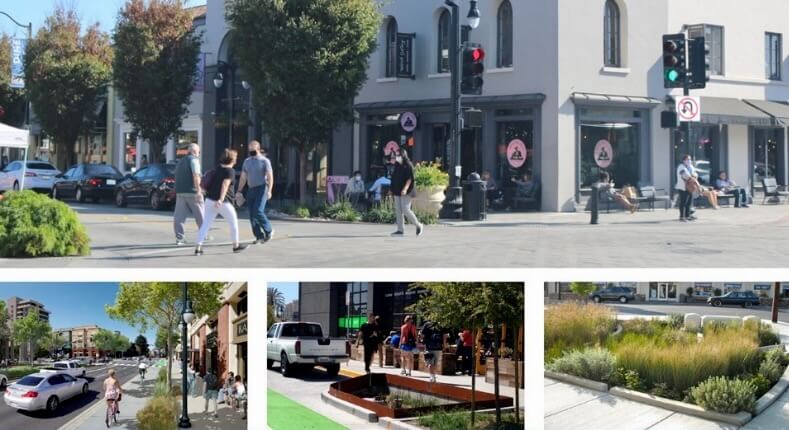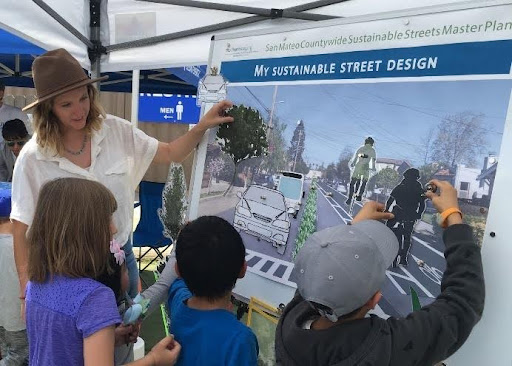City/County Association of Governments (C/CAG) of San Mateo County
Identifying Project Opportunities that Merge Complete Streets and Green Infrastructure to Address Multiple Sustainable Benefits
Paradigm led the development of the San Mateo Countywide Sustainable Streets Masterplan (SSMP), the first of its kind in California that merges active transportation “complete streets” planning with stormwater-focused green street analysis to create a recommended network of sustainable street improvements across a county. The team, supported by Lotus Water, worked with C/CAG to identify and prioritize sustainable street projects throughout San Mateo County. Tasks included developing sustainable street typologies that map to funding mechanisms to facilitate implementation, multi-benefit scoring and prioritization of projects, and conceptual design of highest-priority projects to provide demonstration of the design aspects and benefits of the range of typologies. The typologies help link street improvements to planned active transportation projects, such as pedestrian safety/vision zero improvements, bike lane/connectivity improvements, Safe Routes to School, and main street/commercial corridor reinvestments. The team worked with municipalities throughout the County to create an implementation plan that maximizes co-benefits by leveraging overlapping stormwater, transportation, social equity, and climate change priorities. To support this analysis, Paradigm performed climate change modeling of all San Mateo County watersheds and quantified the benefits of sustainable streets for mitigating future impacts.
Linking to the Community and Parallel Active Transportation Planning
A focus of the SSMP was to identify sustainable street opportunities that are most beneficial to the community, with particular attention to vulnerable/disadvantaged communities that are most likely to walk or bike. Active transportation planning efforts within the County had already identified numerous street corridors considered for “complete streets” to address bicycle and pedestrian safety, with many of these planned projects within disadvantaged communities. The SSMP built upon these approaches to forge a community outreach plan to meet people where they are. Over 1,000 county residents, local and regional government officials, and stakeholders from government agencies and other organizations around San Mateo County participated in the SSMP development by voicing their priorities and concerns surrounding sustainable streets.
Web-based Tracking System to Support Project Implementation
As part of the SSMP, Paradigm developed a web-based Green Infrastructure Tracking Tool to support future implementation and tracking of sustainable streets and similar green infrastructure projects throughout the county, including onsite Low Impact Development (LID), traditional green streets, and regional stormwater capture and treatment facilities. The tool includes a public-facing dashboard with an interactive map and summary of the benefits of implemented and planned green infrastructure projects throughout the county. By clicking a project location on the map, additional information and renderings are visible and tailored to educate community members on the benefits of sustainable streets. The tool includes cloud-based modeling of the stormwater capture benefits associated with individual projects or combinations of projects countywide or within individual municipal jurisdictions or watersheds. The tool reports model-based estimates of annual volumes captured, mitigated impacts of future climate change on stormwater runoff, and annual pollutant loads associated with San Francisco Bay Total Maximum Dail Loads (PCBs and mercury). The tool also provides personalized dashboards for each of the 35 cities and unincorporated County to view projects within each jurisdiction, quantify stormwater capture benefits, and support annual reporting on the progress of green infrastructure implementation.


